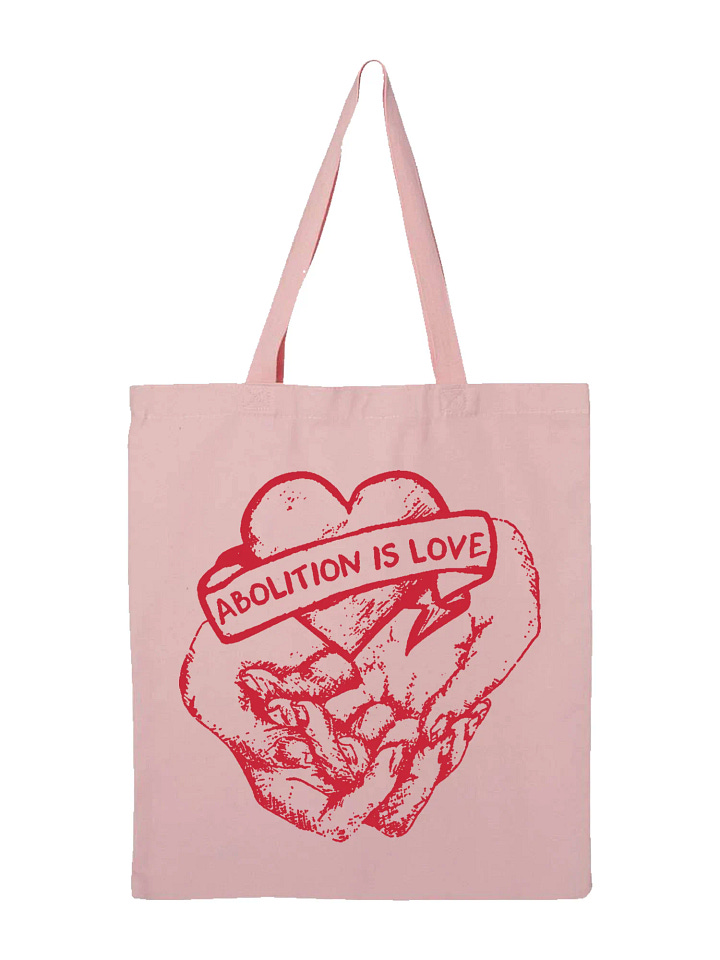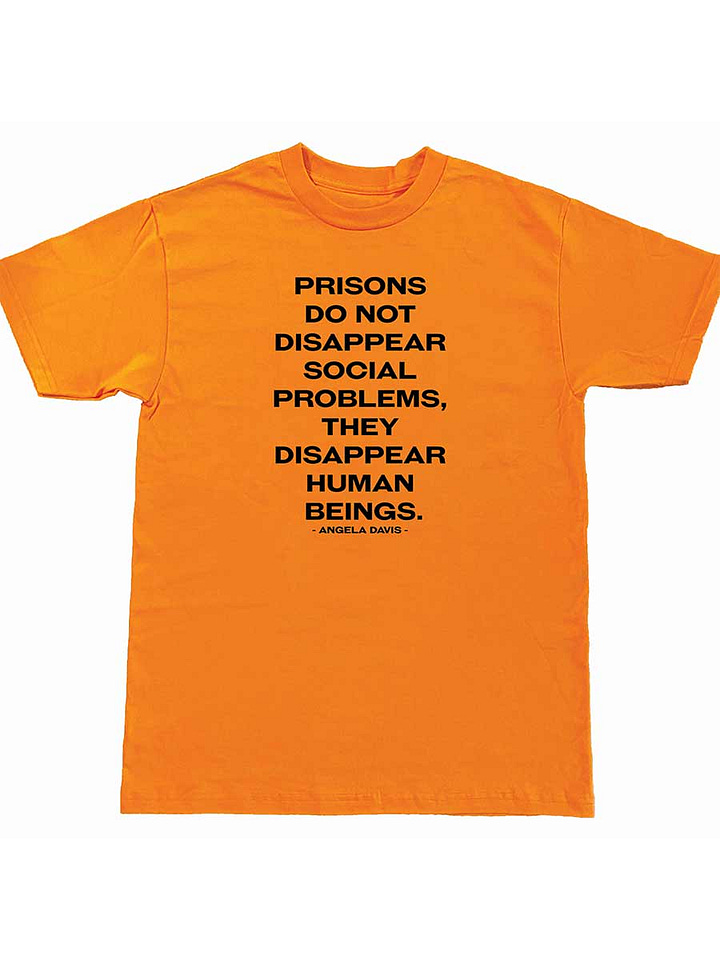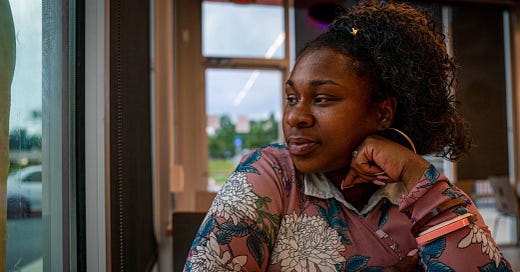The Creative Abolitionist | Vol. 1
A newsletter focused on the intersections of abolition, youth organizing, and creativity from the desk of Lincoln Mondy, Program Officer at Andrus Family Fund.
Hi there!
You’re receiving this missive because you are a grantee-partner, board member, or philanthropic partner with the Andrus Family Fund, which invests in the movements to abolish youth incarceration, family policing, and other harmful systems impacting young people (more context in our strategy refresh).
I’m four months into my role and have much to learn. If you allow me, I’d love to do that learning with you, out in the open and in a way that may bring others along.
Why The Creative Abolitionist?
We’re constantly bombarded with visuals of policing, prisons, and punishment. Entertainment, the news, our schools. There is virtually no aspect of modern-day life untouched by propaganda aimed at normalizing these human-designed, oppressive systems as mandatory components of our past, present, and future.
The physical expression of these systems also conveys values through design. White concrete walls for containment. Narrow hallways for crowd control. Entire buildings without windows. Bright, harsh, fluorescent lighting for better surveillance. Clinical waiting rooms for families with barriers to quell physical connection.
We can’t ignore the ways systems physically show up in our communities or in our minds. Oppression is consistent, stubborn to adapt, and hellbent on maintaining the status quo. This has created a reality where prison abolition appears in people’s minds with visuals of destruction, burning buildings, and apocalyptic streets of duress.
This, too, is by design. But it couldn’t be further from the truth. The world we’re working towards looks like former youth prisons transformed into opportunity centers, neighborhood grocery stores providing free food and thriving wages to system-impacted young people, or organizations working to transform responses to harm by providing access to mental health support for survivors.
As a politic, abolition hinges on collaboration, like most creative endeavors. It requires imagination beyond what you see, like a blank canvas or primed wall. It’s about forming relationships with each other that sustain and inspire to the point where we are deeply invested in the health and safety of our friends, neighbors, and strangers so that no one is disposable.
Oppressors don’t want us to imagine a future where we all belong, void of harmful systems and filled with grace, care, and thriving futures. But that visualization is a crucial element in our movement. We need artists, organizers, and cross-issue collaboration to make a case for abolition irresistible and urgent. We all need to be able to see the world we’re building, not just the one we’re leaving behind.
The Creative Abolitionist is my line in the sand declaring that tearing down structures leaves room for new growth—a barren concrete foundation for us to sprout through the cracks and sow the worlds we’ve dreamt up.
But first, allow me to (re)introduce myself:
I approach this work as a creative. My background is in film, interior design, and narrative change.
While this is my first role in Philanthropy, I’ve had the pleasure of collaborating with AFF Director Mishi Faruqee as well as other grantee-partners while I was at BerlinRosen working on narrative change and then Advocates for Youth leading external strategy focused on young people’s sexual and reproductive health.
As of February 2024, I'm based in Philadelphia with my fiancé Amirio and doghter, Lilo! I also claim D.C. and my hometown of Farmersville, Texas!
Below are opportunities from AFF and our partners. If your organization decides to submit for any opportunity shared here, know that the AFF team is available for questions, brainstorms, and submission reviews if helpful.
February 23 deadline: The Communities Transforming Policing Fund (CTPF) at Borealis Philanthropy launched its third round of participatory grantmaking focused on grassroots organizing groups working authentically with communities most impacted by policing and incarceration.
February 29 deadline: The Annie E. Casey Foundation Fund for State Children and Youth Policy provides state policy advocacy grants of up to $100,000 focused on basic needs, income and work support, and post-secondary education for young people under 24.
April 30 deadline: The Nathan Cummings Foundation has an open call for two funding opportunities: grants and program-related investments (PRIs). Proposals must align with NCF's interconnected goals of racial justice, economic justice, and/or environmental justice.
When Families Need Housing, Georgia Will Pay for Foster Care Rather Than Provide Assistance | ProPublica
This searing ProPublica investigation found that in more than 700 cases over five years, Georgia reported inadequate housing as the sole reason for taking a child into foster care. This investigation makes a case for why any strategy for keeping families together needs to be supported with tangible, immediate resources.
In Newark, 16-Year-Olds Win the Right to Vote in School Board Races | New York Times
Let the kids vote! Earlier this month, Newark City Council made history by becoming the first (and largest city) in New Jersey to raise the voting age for school board elections. As far-right conservatives continue running for school board seats in an attempt to roll back history, why shouldn't students get a say in who represents them?
This New York Times piece shares more about the New Jersey Institute for Social Justice and its partners' successful campaign to lower the age — but it's not just New Jersey; the below communities have successfully lowered the age for school board or local elections. I'm interested in how these changes to broaden the electorate expand youth and family power and potentially develop a new (and earlier) relationship to civic engagement. Dive deeper with Fair Vote.
Communities that have lowered the voting age (via Youth Rights)
Berkeley, California – school board elections
Brattleboro, Vermont – all local election
Greenbelt, Maryland – all local elections
Hyattsville, Maryland – all local elections
Oakland, California – school board elections
Riverdale Park, Maryland – all local elections
Takoma Park, Maryland – all local elections
Here is what is on the calendar! Let me know if I will see you there or if you have local recommendations for places, connections, or organizations. I'll share out learnings!
March 22-24 | Montgomery: The Andrus Family Fund Board and Staff will be in Montgomery, Alabama, experiencing the EJI Legacy Sites to ground our strategy and work in a historical context.
April 10-11 | Seattle: The Youth Transition Funders Group spring meeting.
April 24-28th | St. Louis: I'm attending the ABFE (A Philanthropic Partnership for Black Communities) 2024 Harambe conference.
Put your $$ where your values are!
For Everyone Collective is a worker-owned fashion brand from formerly incarcerated people and their loved ones.












